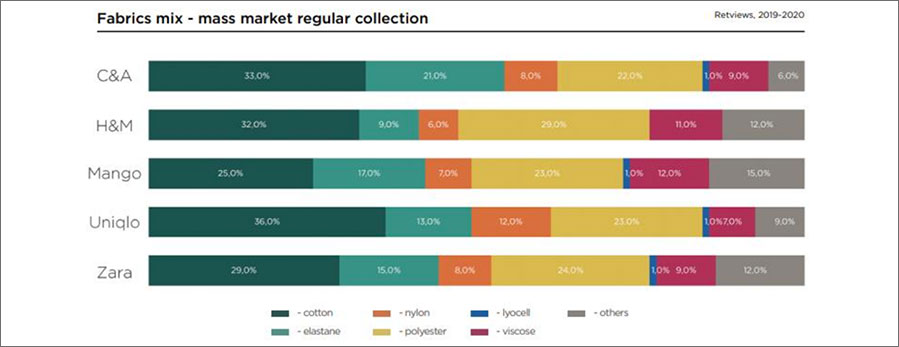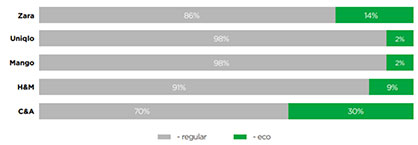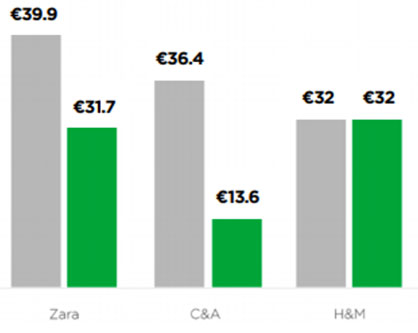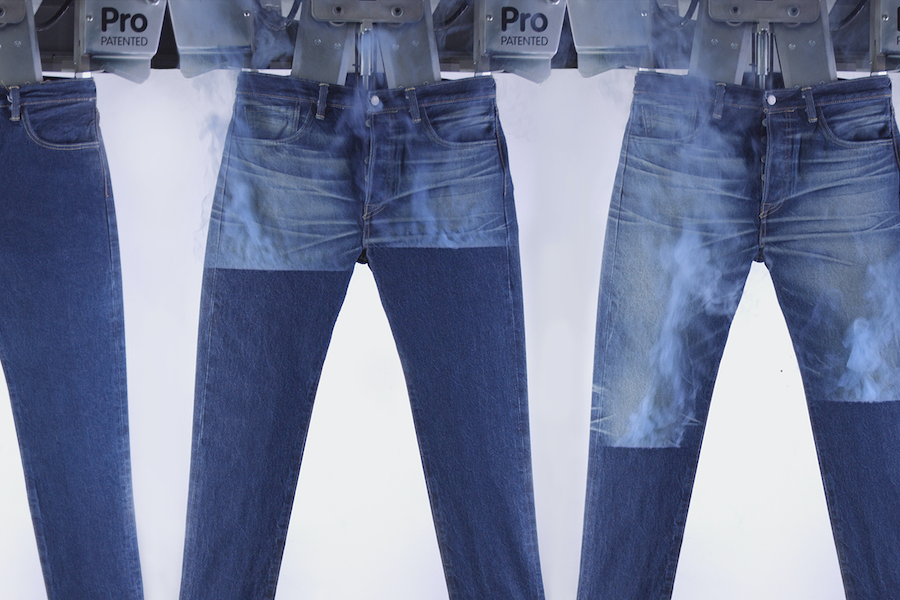#Sustainability
Sustainable fashion: How are the leaders in fast fashion doing?

Post-COVID-19 survey
- 10% of their offer is eco-responsible.
- Sustainable cotton is a priorityfor retailers for the coming years.
- Sustainable garments cheaper than standard garments.
The COVID-19 crisis has given many people the desire to live more meaningfully and to act more responsibly. The crisis period could be seen as the catalyst that forces the fashion industry to change the way it designs, produces and distributes its products. Since, for consumers, buying is a way of expressing a commitment and affirming their values, brands have an incentive to change their offer in preparationfor the future, by taking a more eco-responsible, authentic and transparent approach.
While these factors were apparent before the pandemic, they have now become the key to interacting with consumers wanting a more responsible offer. The era of the consumer activist, long heralded without actually becoming a reality, is now here, and brands must adapt in response.
Sustainable collections still a very small minority
The proportion of sustainable fashion in collections varies considerably from one retailer to the next. For example, eco-friendly collections constitute only a small portion of the ranges offered by leading retailers Zara and H&M, which signedthe Fashion Pact during the G7 Summit in Biarritz.
Zara’s Join Life collection represents 14% of its range, whereas C&A’s #Wearthechange represents nearly 30% of its total collection. The Conscious collection at H&M, which tops the Fashion Transparency Index, created by Fashion Revolution, accounts for less than 10% of its total range.

Composition of products in eco-friendly collections
C&A, H&M and Inditex (Zara) are among the top four users of organic cotton. All the brands analyzed in the Retviews survey present their cotton as sustainable and consider it a priority for 2020 and beyond.
There is little difference between the fabrics mostcommonly usedin the mass and premium markets. The same is true for eco-friendly compared to standard collections. Cotton, synthetic fabrics such as polyester, elastane and also viscose are the most widely offered and used fabrics.
Are sustainable fabrics more expensive?
The assumption that sustainable and/or organic garments are more expensive is a misconception, according to the results of the survey. H&M’s exclusive sustainable collection, Conscious, is a good example. The average price of a dress in the standard collection is €39.90, whereas in the Join Life collection it is €31.70.

The opportunities offered by sustainability are significant. It’s an issue attracting much greater interest from Generation Z, and retailers have listened to and taken on board these concerns. 90% of consumers say they are aware of the situation and are prepared to change their behavior to combat climate change*. This shows their real inclination to invest in eco-responsible products. In view of this change, brands have a social responsibility to inform their customers, to be transparent about their progress in this area, and to share some of the challenges they face, in order to educate their communities. There are currently no international regulations for apparel defining what can be described as sustainable. This means that there is still a long way to go before the standardization of sustainable fashion is achieved. ”explains Quentin Richelle, Chief Marketing Officer, Retviews.
*European study on sustainable consumption by Oney-Februry2020












